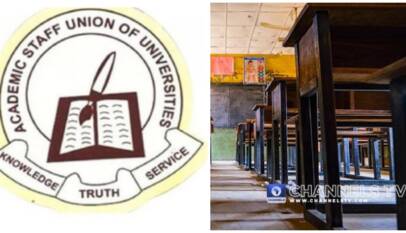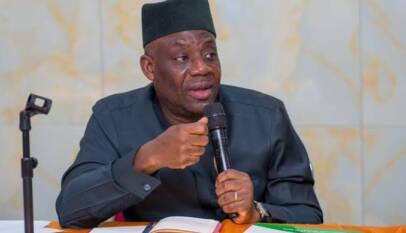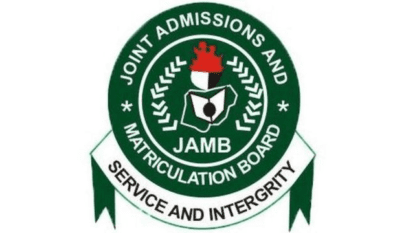By Deborah Nnamdi
As part of broader reforms to revitalise Nigeria’s education sector, the Federal Government has launched a digital platform aimed at simplifying teacher registration, certification, and professional development.
Unveiling the portal and the Strategic Vision for Nigerian Teachers in Abuja on Monday, the Minister of Education, Dr. Tunji Alausa, said the initiative is part of efforts to reposition the education system for improved outcomes.
Developed by the Teachers Registration Council of Nigeria (TRCN), the portal offers a one-stop platform for teacher registration, licensing, renewal, and professional development tracking. It will also serve as a national database to monitor teacher performance and career progression.
“It will enable exam scheduling, support continuous professional development, and ensure we have a credible, up-to-date record of educators across the country,” said Alausa.
He added that the reforms go beyond technology, anchored on five pillars: professionalisation, digitalisation, accountability, equity, and global alignment.
A key part of the reform is the upcoming Teacher Ethics and Criminal Record Verification Framework, designed to uphold ethical standards and classroom safety.
“This framework is not punitive—it’s protective. It ensures we safeguard our children and maintain moral integrity in our schools,” Alausa said.
Private schools will also be required to verify the TRCN registration and ethical clearance of their teachers via the portal, which includes a secure verification system.
TRCN Registrar, Dr. Ronke Soyombo, revealed the portal is part of her 100-day action plan to digitise the council’s services and boost operational efficiency.
“Teachers can now register, access results, and print their certificates from anywhere—no need to visit state offices,” she said.
Soyombo also announced a major reform to the Professional Qualifying Examination (PQE), which has been reduced from 23 subjects to five core areas: foundational mathematics, literacy, digital literacy, safeguarding, and pedagogy.
Looking ahead, the TRCN plans to launch an AI-powered lesson plan generator by October to provide contextualised instructional materials tailored to Nigeria’s diverse learning environments.
Soyombo said the digital reforms could lead to a 50% increase in certified teachers, strengthen child protection, and align Nigerian teaching standards with global benchmarks.
Dr. Patrick Adeleye, CEO of TeckPlus Digital Solutions, which developed the platform, said the project—20 months in the making—was designed to address longstanding issues in teacher data management.
“We didn’t have accurate data on how many teachers we had, who was certified, or who was even qualified. This system changes that,” he said.
The portal will also feed into Nigeria’s Education Management Information System (EMIS) to support better planning and resource allocation.
Representatives of international partners hailed the initiative. Chikodi Onyemerela, Director of Programmes at the British Council, described it as a milestone in education reform, while Ian Attfield, Senior Education Adviser at the British High Commission, said it would strengthen data use and boost teacher morale.
Meanwhile, Mohammed Isa, Senior Special Assistant to the President on Special Needs and Equal Opportunities, urged the integration of accessibility features such as screen readers, sign language, and digital braille—ensuring inclusivity in line with the administration’s Renewed Hope Agenda.































